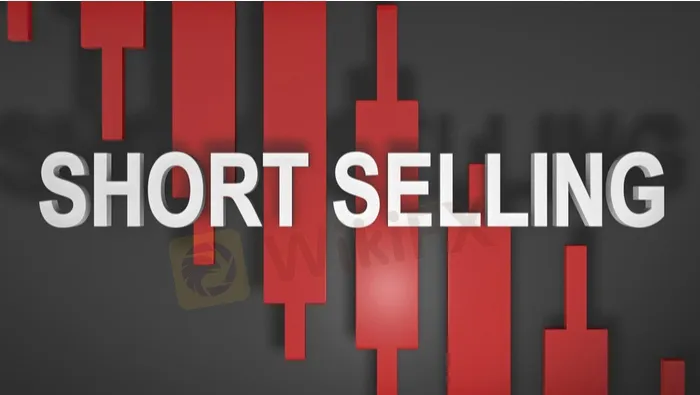简体中文
繁體中文
English
Pусский
日本語
ภาษาไทย
Tiếng Việt
Bahasa Indonesia
Español
हिन्दी
Filippiiniläinen
Français
Deutsch
Português
Türkçe
한국어
العربية
Short Selling: What Experts Should Note Pt. 1
Abstract:The first thing to consider before learning this approach, short selling is an advanced strategy for trading and investing experts. Short selling is a method for traders to speculate.

Meanwhile, for portfolio managers or investors they use hedge to battle the downside risk in the long position. But why do traders need short selling to speculate? Speculating means you will meet the possibility of substantial risk and in the trading. In other words, hedging is a common transaction that involves placing an offsetting position to limit risk.
The position in short selling begins by borrowing shares of assets or stock investors believe will decrease in value. Next, the investor sells these borrowed stocks or assets to buyers. In this situation, traders could start bidding the lower cost because they bet that the price would continue to jump. Because trading profit is infinite, the loss in short selling is also infinite. But from where do the sellers open the position? Usually they open short selling from a broker-dealer. They hope that they could somehow buy back if the price declines.
The form should be borrowed shares because it simply cannot sell shares that do not exist.In order to close a short position, a trader could buy the shares back on the market. Traders should be aware about the account and interest charged by the brokers. Furthermore, in order to start short selling, a trader should own a margin account. Margin account is basically a brokerage account the broker lends the customer to pay stocks or other products in finance.
When the position opens, a trader sometimes must pay for charges too. It is important to know that some financial institutions set minimum values for the margin account they maintain known as the maintenance margin. These financial institutions are FINRA (Financial Industry Regulatory Authority Inc, NYSE (The New York Stock Exchange), and the Federal Reserve.

Disclaimer:
The views in this article only represent the author's personal views, and do not constitute investment advice on this platform. This platform does not guarantee the accuracy, completeness and timeliness of the information in the article, and will not be liable for any loss caused by the use of or reliance on the information in the article.
Read more

The Hidden Checklist: Five Unconventional Steps to Vet Your Broker
Forex broker scams continue to evolve, employing new tactics to appear credible and mislead unsuspecting traders. Identifying these fraudulent schemes requires vigilance and strategies beyond the usual advice. Here are five effective methods to help traders assess the legitimacy of a forex broker and avoid potential pitfalls.

Doo Financial Obtains Licenses in BVI and Cayman Islands
Doo Financial, a subsidiary of Singapore-based Doo Group, has expanded its regulatory footprint by securing new offshore licenses from the British Virgin Islands Financial Services Commission (BVI FSC) and the Cayman Islands Monetary Authority (CIMA).

CFI’s New Initiative Aims to Promote Transparency in Trading
A new programme has been launched by CFI to address the growing need for transparency and awareness in online trading. Named “Trading Transparency+: Empowering Awareness and Clarity in Trading,” the initiative seeks to combat misinformation and equip individuals with resources to evaluate whether trading aligns with their financial goals and circumstances.

Malaysian-Thai Fraud Syndicate Dismantled, Millions in Losses Reported
The Royal Malaysia Police (PDRM) has received 26 reports concerning the Nicshare and CommonApps investment schemes, both linked to a major fraudulent syndicate led by a Malaysian citizen. The syndicate’s activities came to light following the arrest of its leader by Thai authorities on 16 December.
WikiFX Broker
Latest News
ASIC Sues Binance Australia Derivatives for Misclassifying Retail Clients
WikiFX Review: Is FxPro Reliable?
Malaysian-Thai Fraud Syndicate Dismantled, Millions in Losses Reported
Trading frauds topped the list of scams in India- Report Reveals
AIMS Broker Review
The Hidden Checklist: Five Unconventional Steps to Vet Your Broker
YAMARKETS' Jingle Bells Christmas Offer!
Revolut Leads UK Neobanks in the Digital Banking Revolution
Fusion Markets: Safe Choice or Scam to Avoid?
SEC Approves Hashdex and Franklin Crypto ETFs on Nasdaq
Currency Calculator


